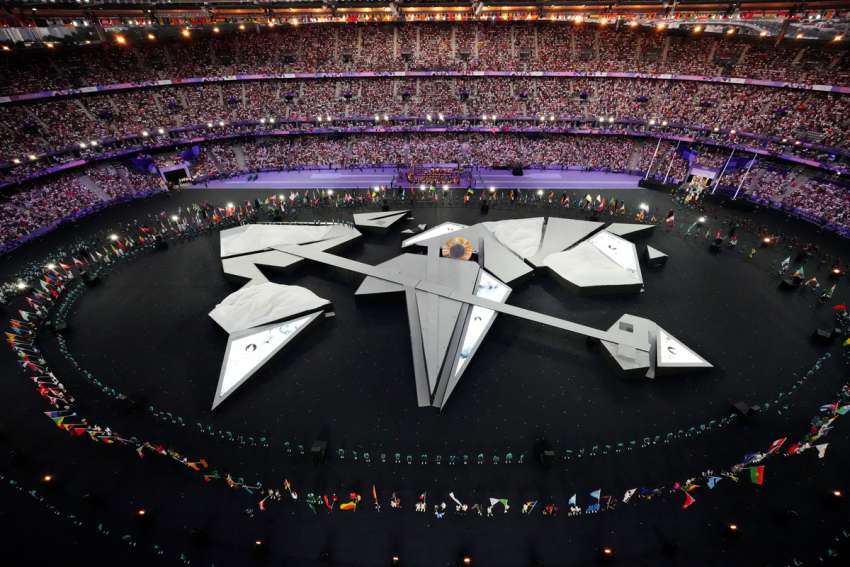Doing wrong is like sport to a fool, but wise conduct is pleasure to a person of understanding.
Proverbs 10: 23
As a young man of 16, and a competitive high school gymnast, I was thrilled to get a job at the Montreal Olympics. Organizers were desperate for staff, so I was put in the bar stand at the basketball arena, an under-aged kid blissfully selling beer to thirsty patrons. When they promoted me to manager because I was the oldest in the booth, the boss explained it wasn’t quite legal. “If someone asks for your ID,” he said thoughtfully, “just lie.” I now see it may have been the tamest of infractions in an event riddled with nefariousness.
Of course, I begin this rumination with the thought of the Canadian women’s soccer team in mind, certainly disappointed by the news that the coaching team used a drone to study their opponent’s practices. A pall has already been cast on our team’s previous success. Cheating is a cancer, and it spreads quickly and comprehensively. I remember a similar feeling of dread when the Ben Johnson scandal broke. For a nation that is not always at the top of the podium, our victories carry more weight so our failings are disproportionately heavier.
Anticipating the games, I looked into how the Bible has treated sports and found numerus references to wrestling, archery, running and more. There are wonderful aphorisms about the importance of honesty in athletics, such as 2 Timothy: “And in the case of an athlete, no one is crowned without competing according to the rules.” There is also quite a bit about Saul and others who use the word “sport” to describe how opponents might abuse them. As we read in 1 Samuel, Saul tells his armour-bearer to draw his sword and “thrust me through with it, so that (his enemies) may not come … and make sport of me,” a conversation repeated in 1 Corinthians. When his aid refuses to stab him, Saul “took his own sword and fell on it.” Job expresses a similar sentiment: “Now they make sport of me, those who are younger than I.”
I was turning to the Bible for parallels with this global event, hoping to stress the positive — the sense of belief and hope which the Olympian ideal putatively celebrates. Yet from the very first frames of the games I was forced to confront negativity. The opening ceremony was an odd mish-mash of dioramas, but an offensive reproduction of The Last Supper was thrown insultingly into the mix, mocking Jesus and the apostles portrayed by drag queens. Were this a protest march, or an anti-Church event, it might have been expected. But why it should feature in a deliberately secular performance in one of the most secular nations on the planet for an event celebrating sporting prowess and international harmony is a mystery that no amount of disingenuous back-peddling by the artistic director could justify.
Brazilian surfer Joao Chianca was then forced to sideline his favourite board because it featured an image of the famous Christ the Redeemer statue, iconic symbol of Rio de Janeiro in Brazil, perhaps as emblematic of that city as the Opera House is for Sydney, Australia. No matter, the organizers insisted that the games needed to be “unreligious,” except it seems if directly attacking Christianity. Perhaps the organizers would have been more disposed towards the board if the image featured the drag queen from the opening ceremony.
Despite the negativity and unfettered commercialisation that has marred the modern Olympic Games, arguably since their inception, I want to bypass my growing cynicism and disappointment and focus on the moments of greatness, where Olympian spirit, not medal fever, reminds us of our potential for goodness. I think here of the surprising number of runners who have forfeited victory to help a struggling competitor to cross the finish line; who have sailed to the rescue of a floundering colleague; or who have agreed to share a medal in recognition of a joint accomplishment.
For an event that is all about the medals, it’s strange so few people know about arguably the most important one: the Pierre de Coubertin award, named after the “father” of the modern Olympic games and meant to “exemplify the spirit of sportsmanship.” That a separate award exists for this specific purpose when arguably all the medals should represent these values, says all we need to know.


